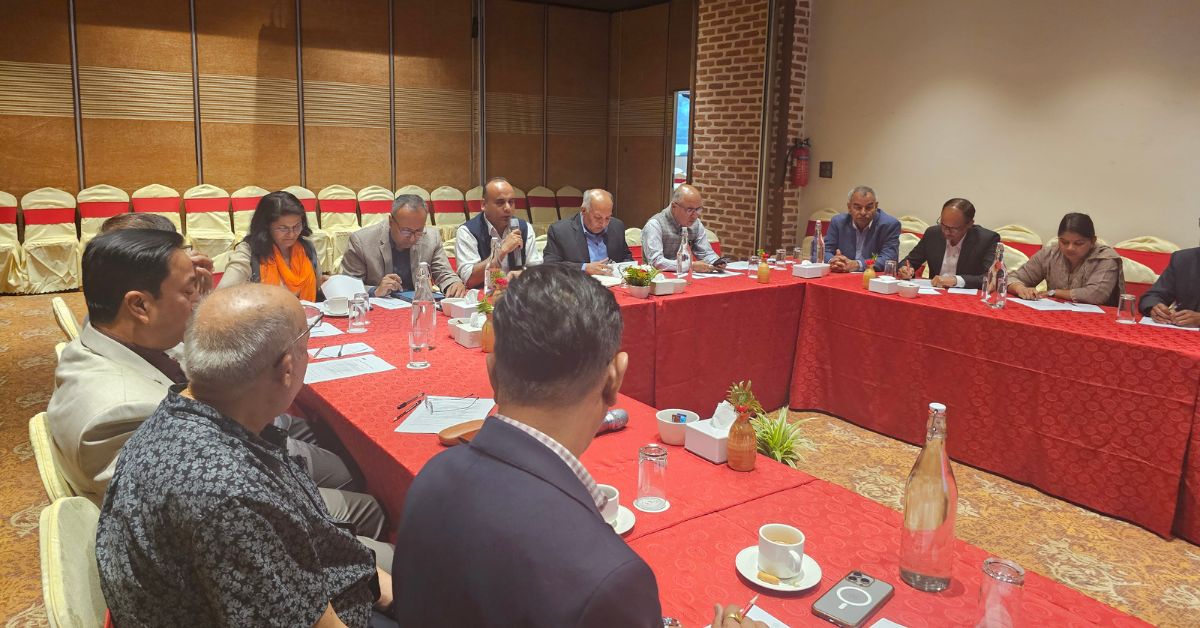
Kathmandu: The Centre for Social Innovation and Foreign Policy (CESIF) hosted a closed-door roundtable discussion on the “Current Status of BRI and Chinese Investments in Nepal” on Monday, 30 June 2025, at the Basera Boutique Hotel.
According to the press release, the event convened a select group of foreign policy experts, former diplomats, senior bureaucrats, economists, journalists, and researchers for an in-depth conversation on the evolving landscape of Chinese development aid and Belt and Road Initiative (BRI) projects in Nepal.
Held under the Chatham House Rule, the roundtable provided space for frank, evidence-based dialogue on the political economy, governance dynamics, and strategic implications of Chinese investments in Nepal.
The program began with a contextual overview highlighting the complexities of Nepal’s engagement with China under the BRI framework. Participants reflected on the formal signing of the BRI Framework Agreement during the Prime Minister’s December 2024 visit to China, as well as the inclusion of ten designated projects. While these milestones marked symbolic progress, speakers noted the slow pace of implementation, stemming from ambiguous financing arrangements, institutional weaknesses, and geopolitical sensitivities.
Moreover, multiple participants observed that China appears clear in its strategic priorities, particularly around connectivity projects such as the Trans-Himalayan Multi-Dimensional Connectivity Network, whereas Nepal has struggled to define its own negotiating objectives. Key projects like the Hilsa–Simikot Road and Rasuwagadhi–Jilong transmission line were discussed as examples of both potential and inertia.
Institutional capacity constraints within Nepal’s bureaucracy, particularly within the Ministry of Foreign Affairs, were cited as persistent barriers to effective diplomacy. Experts emphasized the need for Nepal to adopt a more proactive and strategic stance in international negotiations, grounded in national development priorities and robust policy coherence.
Participants also underscored the importance of shifting public narratives. While public perception of BRI remains broadly positive, media portrayals were seen to vary, government-affiliated outlets adopt a cautiously optimistic tone, whereas independent media tend to be more skeptical. The discussion noted that both Western and Chinese-aligned literature on BRI are often ideologically skewed, calling for more independent, Nepali-led analysis and public discourse.
Likewise, concerns were also raised about inflated expectations, limited preparedness, and the proliferation of politically motivated promises. Speakers called for a renewed focus on project viability, strategic location, and economic returns, rather than symbolic or politically expedient choices. Some participants argued that Nepal should streamline its list of priority projects, focusing on those with the highest developmental impact.
Finally, the discussion touched on broader geopolitical considerations. China’s expanding influence through not only BRI, but also initiatives like the Global Development Initiative (GDI) and Global Security Initiative (GSI), was seen as part of a wider recalibration of regional geopolitics. Participants stressed the importance of maintaining strategic balance and institutional discipline as Nepal navigates its partnerships with both China and other development actors.